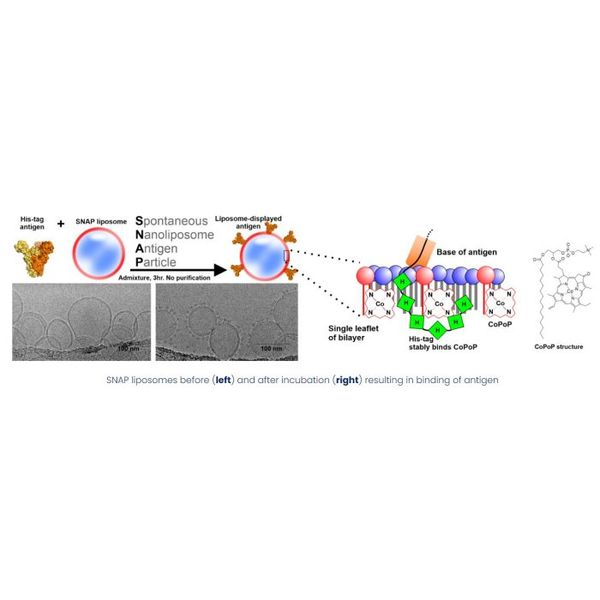

- Home
- Companies
- POP Biotechnologies, Inc. (POP BIO)
- Products
- Spontaneous Nanoliposome Antigen ...
Spontaneous Nanoliposome Antigen Particleization (SNAP) Platform Technology
The SNAP (Spontaneous Nanoliposome Antigen Particleization) platform technology is a unique liposome-based system that functions as a potent vaccine adjuvant designed to address functional and practical limitations facing vaccine development.
Recombinant proteins and peptides represent a safe and simple method of vaccine production with the added benefits of defined antigenicity, rapid manufacturing and scale up. However, recombinant proteins often fail to produce a robust immune response, leading to a lack of protection against the disease of interest. In order to generate a viable immune response, antigens are often coupled to immunogenic carriers, nanoparticles, or engineered into virus-like particles, a labor-intensive process with significant detriments for vaccine development and manufacturing. The SNAP platform seeks to address these limitations by providing a novel nanoparticle platform that has the functional simplicity of conventional vaccine adjuvants.
The SNAP approach involves simple incubation of His-tagged antigens with SNAP-liposomes (Figure 1A), leading to the insertion of the His-tagged antigen into the bilayer and coordination with cobalt chelated in the porphyrin lipid, forming a His-tag membrane anchor (Figure 1B).

INSTANTLY HARNESS THE POWER OF PARTICLE-BASED VACCINES
- SNAP liposomes contain Cobalt porphyrin phospholipid (CoPoP) and the lipid adjuvants synthetic MPLA and optionally QS-21
- CoPoP enables rapid and biostable display of antigens on liposomes with simple mixing.
- SNAP focuses the immune response on antigen of interest with protein-free scaffold technology
- Requires a conventional his-tagged antigen (4-10X) for usage
